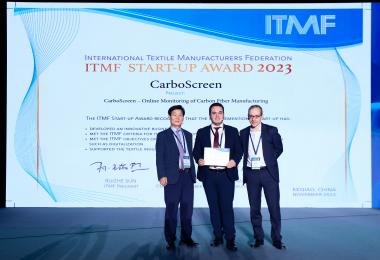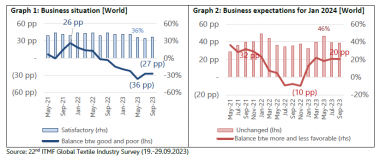ITMF: Increase in raw materials consumption
ITMF (International Textile Manufacturer Federation) has published its International Textile Industry Statistics (ITIS) on productive capacity and raw materials consumption in the short-staple organized (spinning mill-) sector in virtually all textile-producing countries in the world.
The global number of installed short-staple spindles has grown from 225 million units in 2021 to 227 million units in 2022. The number of installed open-end rotors increased from 8.3 million in 2021 to 9.5 million in 2022. This constitutes the strongest growth ever recorded in this market with investment disproportionally targeting Asia. The number of installed air-jet spindles continued to increase in all regions in 2022.
The substitution between shuttle and shuttle-less looms continued in 2022. The number of installed shuttle-less looms increased from 1.72 million in 2021 to 1.85 in 2022 while installed shuttle looms reached 952 thousand. Total raw material consumption in the short-staple organized sector slightly decreased from 45,6 million tons in 2021 to 44,26 million tons in 2022. Consumption of raw cotton and synthetic short-staple fibers decreased by -2.5% and -0.7%, respectively. Consumption of cellulosic short-staple fibers increased by 2.5%.
ITMF International Textile Manufacturers Federation Statistical Data raw materials spinning
ITMF - International Textile Manufacturer Federation










